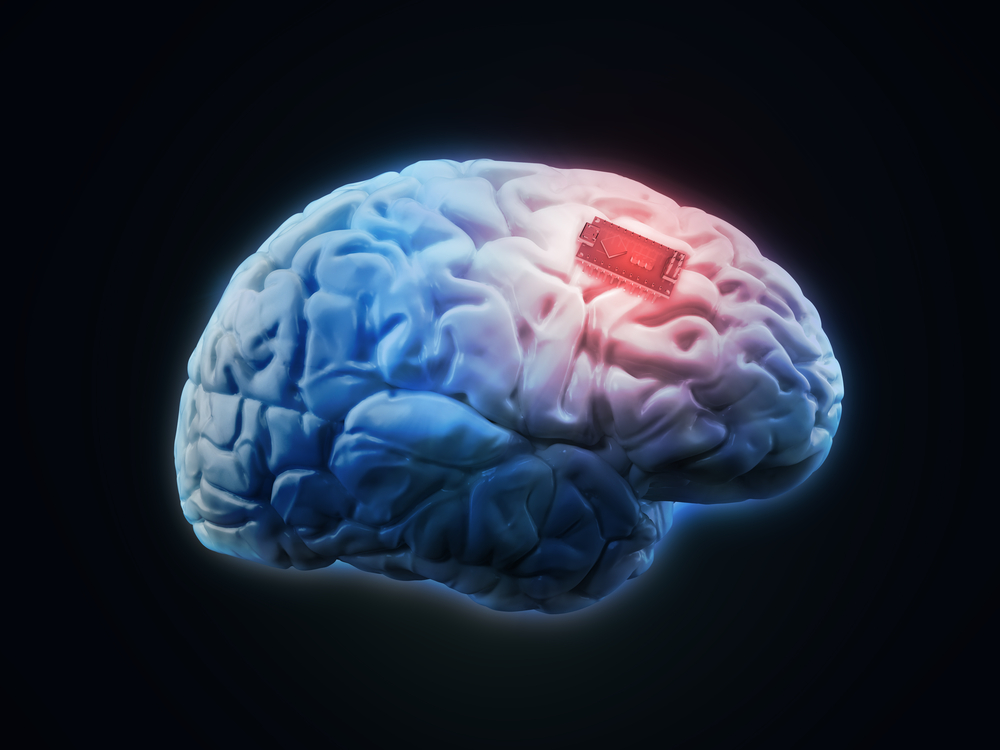Elon Musk announced this week that he wants to insert Bluetooth-enabled implants into your brain. He claims the devices could repair motor function in people with injuries and enable telepathy.
The CEO of SpaceX and Tesla said his Neuralink device will involve a tiny chip connected to 1,000 wires that measure one-tenth of a human hair.
RELATED STORY:
Musk said the chip features a USB-C port (which is the same adapter used by Apple’s Macbook) and uses Bluetooth to connect to a small computer worn over the ear and then to a smartphone. Commenting on the small size of the device, he added:
“If you’re going to stick something in a brain, you want it not to be large.”1
Neuralink is a startup founded by Musk. They say the devices can be used by by stroke victims, cancer patients, quadriplegics or others with congenital defects, or by those seeking a boost in memory. Up to 10 units can be inserted in a patient’s brain, which will then connect to an iPhone app controlled by the user.
RELATED STORY:
The devices will be installed by a robot built by the startup. The robot, controlled by a surgeon, will drill 2-millimeter holes in a person’s skull, which will be plugged by the chip part of the device. Musk compared the surgery to Lasik eye correction surgery, and said a trial could start before the end of 2020. Musk added:
“The interface to the chip is wireless, so you have no wires poking out of your head. That’s very important.”1
Musk indicated that his Neuralink project is an effort to use artificial intelligence (AI) to have a positive effect on humanity. Previously, he has highlighted AI’s (HUGE) potential to harm humanity.
RELATED STORY:
Musk, who has invested some $100 million in San Francisco-based Neuralink, isn’t the only one to develop human-computer implants. Google and Facebook have both put forth similar efforts. Critics of the project are leary and wonder if people should trust tech companies with data ported directly from their brain. In fact, Daniel Newman, principal analyst at Futurum Research and co-author of the book Human/Machine, recently said:
“The idea of entrusting big enterprise with our brain data should create a certain level discomfort for society. There is no evidence that we should trust or be comfortable with moving in this direction.“1
Even though the technology could help those with trauma or brain injury, Frederike Kaltheuner of Privacy International told CNN Business:
“Gathering data from raw brain activity could put people in great risk, and could be used to influence, manipulate, and exploit them. Who has access to this data? Is this data shared with third parties? People need to be in full control over their data.”1
RELATED STORY:
This new technology comes at a time when the tech industry is under heightened scrutiny over the way it handles data.
In January, France fined Google’s parent company Alphabet for violating EU online privacy rules. Facebook recently faced a $5 billion fine in the United States over its own data privacy violations.
In addition, Tesla has also suffered data leaks. In 2018, researchers at security firm RedLock said Tesla’s cloud storage was breached to mine cryptocurrency.
It seems there is only one way out of Elon Musk’s A.I. nightmare… and that is… don’t go in.












